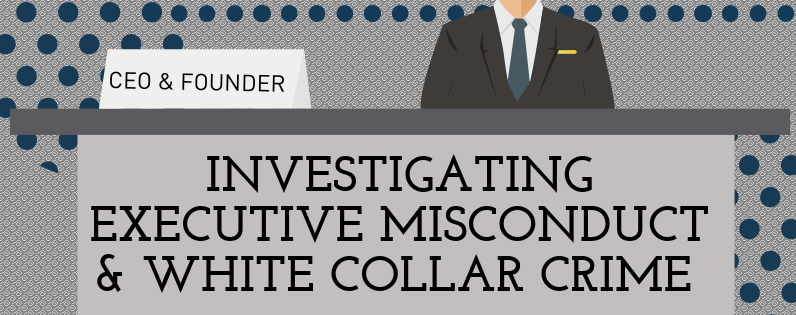The Cycle of Corporate Culture
Culture can be the beginning and end of your company. Many executives and other members of leadership simply think of corporate culture as what the company stands for. This can be expressed through a corporation’s mission statement, their reported “vision,” or their promise to deliver their customers with the best products and services available. Corporate […]
Investigating Executives & White Collar Crime

Don’t let executive misconduct ruin your corporation… When it comes to running a business, the executives who are the visionaries and decision-makers that shape a company should always remain above reproach. White collar crimes have the potential to pull a business up from the root with devastating consequences. Unfortunately, Americans know from media coverage and […]
Investigating Non-Compete Violations
When growing a business, executives and owners have to go the extra mile when it comes to protecting trade secrets. In the pursuit of their company’s business, a common practice for corporations of all sizes is implementing non-compete clauses in their employees’ contracts. This ensures, should an employee leave the company for any reason, they […]
5 Ways Private Investigators Benefit Human Resources

When Hiring a CEO Goes Wrong
When Hiring a CEO Goes Wrong Hiring a CEO is a long and arduous process. Companies can’t afford to waste time and money on the wrong candidates. It’s bad enough when someone gets a CEO position and isn’t good at their job. It’s even worse when they have to resign in embarrassment. More frequently than […]